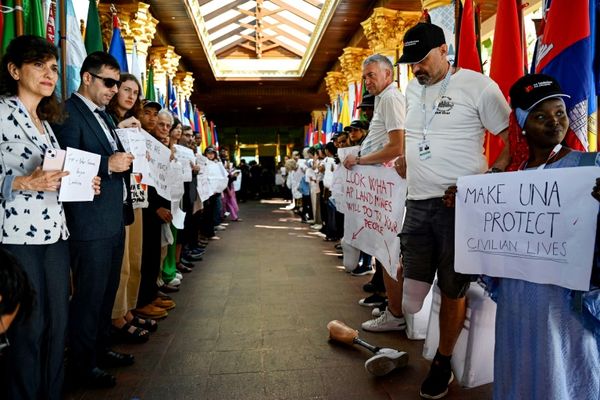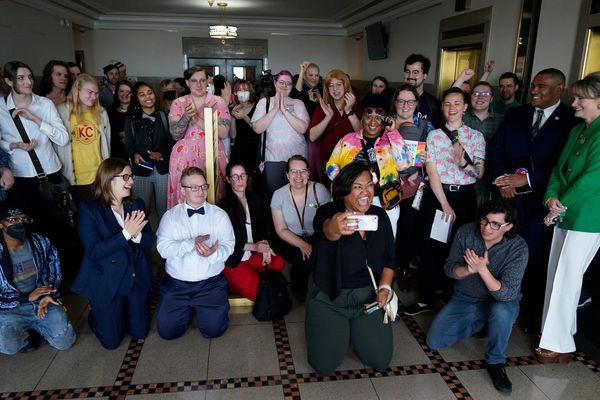WASHINGTON _ Former Air Force and Navy fighter pilots are calling on the military to begin cancer screenings for aviators as young as 30 because of an increase in deaths from the disease that they suspect may be tied to radiation emitted in the cockpit.
"We are dropping like flies in our 50s from aggressive cancers," said retired Air Force Col. Eric Nelson, a former F-15E Strike Eagle weapons officer. He cited prostate and esophageal cancers, lymphoma, and glioblastomas that have struck fellow pilots he knew, commanded or flew with.
Nelson's prostate cancer was first detected at age 48, just three months after he retired from the Air Force. In his career he has more than 2,600 flying hours, including commanding the 455th Air Expeditionary Group in Bagram, Afghanistan, and as commander of six squadrons of F-15E fighter jets at the 4th Operations Group at Seymour Johnson Air Force Base in North Carolina.
Last month McClatchy reported on a new Air Force study that reviewed the risk for prostate cancers among its fighter pilots and new Veterans Health Administration data showing that the rate of reported cases of prostate cancers per year among veterans using the VA health care system across all services has risen almost 16% since fiscal year 2000.
The Air Force study also looked at cockpit exposure, finding that "pilots have greater environmental exposure to ultraviolet and ionizing radiation ... (fighter pilots) have unique intra-cockpit exposures to non-ionizing radiation."
Retired Navy Cmdr. Mike Crosby served as a radar intercept officer in F-14 fighter jets from 1984 to 1997, accumulating over 2,000 flight hours. He started Veterans Prostate Cancer Awareness Inc. in 2016 after his own prostate cancer diagnosis at age 55.
"I think there's been a lot of avoidance in addressing this issue," he said. Crosby and other pilots who contacted McClatchy said they suspect the cancers in their community may be linked to prolonged exposure in the cockpit to radiation from the radar systems on their advanced jets, or other sources such as from cockpit oxygen generation systems.
The Centers for Disease Control and Prevention has reported that exposure to some types of radiation can cause cancer, however to date there has been no link established between the specific radiation emitted from radars on these advanced jets and the illnesses pilots are now seeing.
Navy and Air Force pilots told McClatchy about their battles with cancer, their frustrations about what they saw as the limitations of the Air Force study, and about former pilots who have died from cancer.
"When you're 30 years old you need to start screening for prostate cancer, even if it comes out of your own pocket," Nelson said. "You need to see a urologist once a year. Not your primary care physician, not your flight doc. Pay the money and stick around for your great-grandkids."
If the military would begin screening for cancer earlier, "that would save lives," Nelson said. The military's health care system, TRICARE, currently covers prostate cancer screenings at age 50 for service members with no family history of the disease, and as young as age 40 if there is a family history of the disease in two or more family members. The pilots who spoke with McClatchy said they did not have a family history of prostate cancer when they were diagnosed.
Retired Navy Cmdr. Thomas Hill was a career F-4 and F-14 pilot and squadron commanding officer with more than 3,600 flight hours and more than 960 aircraft carrier landings. Hill was 52 when he was diagnosed with a brain tumor. In December 2011, at age 60, he learned he also had esophageal cancer.
Hill has spent the last two years tracking premature deaths or cancers among former commanding officers of F-14 squadrons. So far he's found more than a dozen who have either been diagnosed or have died from the disease.
"God, they're all my friends," he said.
What has frustrated some pilots is that the government has looked into the connection between military service and cancer rates for years, but with mixed results.
For example, a 2009 peer-reviewed study published by the American Association for Cancer Research looked at cancer rates among service members from 1990 to 2004 and reported in 2009 that "prostate cancer rates in the military were twice those in the general population, and breast cancer rates were 20% to 40% higher."
However, a 2011 study published in the peer-reviewed journal "Aviation, Space and Environmental Medicine" found no significant difference in prostate cancer rates between pilots and non-pilots in the military. It's the same conclusion that the Air Force study found.
"The Air Force did not ask the right question," Hill said of the study, which like the 2011 aviation journal review compared cancer rates between pilots and non-pilots but largely did not look at what happened to the pilots' health after their military careers. The Air Force said its study was limited by lack of access to pilots' health records after they separated from the military.
"If they are really going to protect the people who have gone out and served, they need to look at the guys' health 20 years after they have finished their military careers," Hill said. His own informal review of fellow pilots showed a similar pattern: cancers usually surfaced about 15 to 20 years after pilots left the military, which would not have been captured by the Air Force review.
Derek Kaufman, a spokesman for Air Force Materiel Command, said further studies are under consideration. "We have presented potential options for a follow-up study to the Air Force Medical Readiness Agency," Kaufman said.
None of the pilots who spoke with McClatchy said a greater risk of cancer would have kept them from flying. They said the military should acknowledge the risk and put additional protections in place for the next generation of military aviators.
Hill said he's also worried about the enlisted crew who manned the flight decks of the aircraft carriers.
"The kids that worked the flight line and the flight deck were exposed eight hours a day to that stuff," Hill said.
For future protections for pilots, Crosby said it would be unlikely that the services would retrofit aircraft to add protections against the sources of cockpit radiation, which may be difficult to isolate and would likely add unwanted weight or otherwise affect the performance of the aircraft.
"If we can't change it, we need to be responsible and send an alert that people being exposed need to be screened earlier," Crosby said. "If it's caught early enough, there's a lot of procedures that can not just treat (prostate cancer) but cure it."







